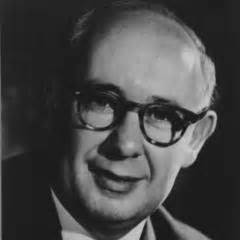A Quote by John Ziman
Ethics is not just an abstract intellectual discipline. It is about the conflicts that arise in trying to meet real human needs and values.
Related Quotes
Typically efforts to address values and ethics in business education and leadership development tend to focus on building Awareness and teaching Analysis. That is, we expose future leaders to the kinds of ethical and values conflicts they may encounter, so that they will recognize them and will have considered them in advance.
Wherefrom are human values to be derived and how are they to be developed? Human values are born along with human birth. They exist in union. Unfortunately, man today separates himself from human values and yet wants to live as a human being. To recover human values, man has to take the spiritual path.
The very essence of political philosophy is the carving out of an ethical system - strictly, a subset of ethics dealing with political ethics. Ethics is the one rational discipline that demands the establishment of a rational set of value judgments; political ethics is that subset applying to matters of State.
We deem valuable whatever is likely to meet our needs or wishes (individual values) and whatever is likely to help protect or attain social goals (social values). However, this is not a dichotomy, for some individual values, such as truth, are needed to secure some social values, such as mutual trust, and some social values, such as peace, are required to pursue some individual values, such as good health.
When needs and means become abstract in quality, abstraction is also a character of the reciprocal relation of individuals to oneanother. This abstract character, universality, is the character of being recognized and is the moment which makes concrete, i.e. social, the isolated and abstract needs and their ways and means of satisfaction.
One of the greatest challenges facing civilization in the twenty-first century is for human beings to learn to speak about their deepest personal concerns-about ethics, spiritual experience, and the inevitability of human suffering-in ways that are not flagrantly irrational. We desperately need a public discourse that encourages critical thinking and intellectual honesty. Nothing stands in the way of this project more that the respect we accord religious faith.




































